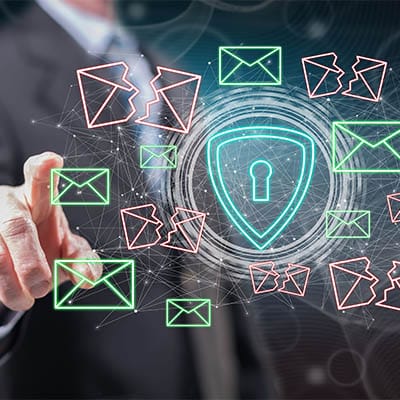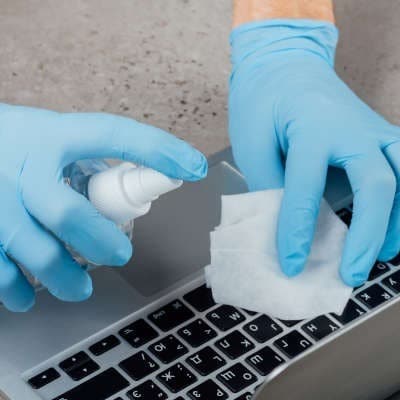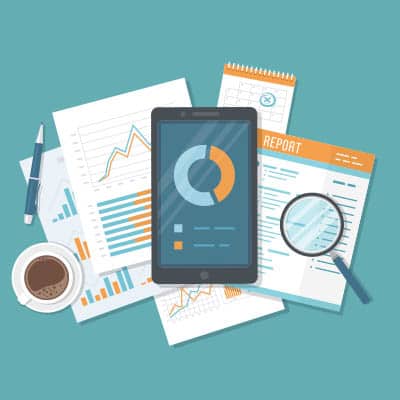If you use almost any Apple products, you’ll want to check for and apply an update that will prevent your devices from being spied on. Apple has just issued an emergency software update for a critical vulnerability that was recently discovered. The new updates were pushed out on Monday, September 13th, 2021, and include a major security fix for the Apple iPhone, Apple iPad, Apple Watch, and Apple Mac computers and laptops.
It’s good to go about your business with an abundance of caution, but sometimes this abundance of caution can lead people to see threats where they simply do not exist. In cybersecurity, this is actually quite easy to see happening, as cybersecurity is such a multi-faceted topic. But how much do these false-positive security reports wind up costing organizations?
Email is a crucial part of any modern business, but it’s not always the most fun topic to cover. It’s more of a necessity than something super exciting, like machine learning or automation. Still, this does not make it any less important, so why don’t we discuss some of the ways you can make sure your organization’s email server is as secure as possible?
IT solutions have the potential to be major problem-solvers for your organization, but they are only as effective as the team members using them. This means that all employees must not only be trained on the solutions, but also must embrace them as the efficient solutions they are. Here are some ways that you can train your employees to make sure that your team is efficiently using new technology solutions.
The ransomware attack against Kaseya’s VSA servers for approximately 1,500 organizations was yet another major challenge for businesses to overcome, and while most of the affected companies did not give in to the hackers’ demands, others felt forced to pay the ransom. The problem, however, is that some of those who did pay the ransom are now having trouble decrypting their data, and with REvil MIA, they do not have the support needed to decrypt their data.
Let’s take a few minutes to examine the ramifications of this improvement, and how it will impact how users can identify themselves as legitimate in the future. What is CAPTCHA? CAPTCHA, or Completely Automated Public Turing Test to tell Computers and Humans Apart, is what Google uses to catch automated spam before it assaults the Internet. The idea is that there are certain ways that humans will interact with content differently than automated spam can. Therefore, by requiring a certain task to be completed in a certain way, the legitimacy of a user can theoretically be verified. At the turn of the century, CAPTCHA was highly effective against spambots by simply requiring the user to identify the text shared in an image. Alas, this was not to remain the case. Why CAPTCHA Has Gotten More Challenging The trouble really started after Google was able to take possession of CAPTCHA and—more importantly—utilize it to help digitize Google Books. The issue here was that, by doing so, the text used to verify users needed to become much more distorted to fool the optical character recognition programs available. No easy feat, especially as human beings were also giving the optical recognition programs the data needed to improve their capabilities as they solved them. The creators of CAPTCHA saw this coming, predicting that machine intelligence would overtake human capability when it came to passing these tests. Adding to the issue, these tests need to be universally approachable, free of any cultural influence or bias. This eventually led to CAPTCHA being replaced by NoCAPTCHA ReCAPTCHA in 94 percent of websites that implemented it. Focusing more on user behavior, the implementation of NoCAPTCHA ReCAPTCHA has not stopped the development of even more secure methods, seeing as many threats are now focused on replicating how a user would interact with the system. The fact of the matter is that automated tools and bots are now more effective than most people when it comes to solving CAPTCHA prompts. In 2014, a machine learning algorithm went head to head against users to test how accurately the traditional distorted-text variety could be bypassed. The bot was successful 99.8 percent of the time. The humans were successful 33 percent of the time. Making things worse, CAPTCHA-solving programs and services are also available, providing a cost-effective way to undermine the security measure. How Can CAPTCHA Be Made Secure Again? While CAPTCHA has the potential to still be effective, there undoubtedly needs to be some way to make it easier for a human being to complete but confounding to a machine. To accomplish this, various tactics have been considered, some more likely than others to be implemented: Requiring users to classify faces based on various guidelines, like their expression, gender, and ethnicity. This method is least likely, considering today’s amplified social awareness. CAPTCHAs that rely on regionalized trivia and nursery rhymes, with these targeted questions helping to prevent bots and distant hackers from succeeding. Image-based CAPTCHAs that use more subjective content like cartoons and optical illusions. Gamified CAPTCHAS with contextual hints for instructions that a computer wouldn’t pick up on. Cameras and augmented reality being used to enable physical authentication. Of course, there is also the continued research into behavior-based authentication that uses metrics like cursor accuracy and other traffic patterns. Google has […]
However, despite these views, most people are far too lax when it comes to their own security. Let’s take a closer look. Consumers on Businesses and Their Data Practices In a recent report from advisory firm KPMG, the results of a survey that asked American consumers about their expectations of corporations and the privacy of their collected data were revealed. These results showed a few concerns very clearly, while revealing that not all respondents were fully aware of today’s most pressing cyberattacks. 86 percent of respondents to the survey felt that their data privacy was a rising concern. 70 percent claimed to be “generally familiar” with how companies collect their personal data, while 64 percent were familiar with how it was used and stored, 63 percent say they understand how it is protected, and 57 percent say they know how it is sold. Having said that, 68 percent don’t trust these companies to sell this data ethically, 54 percent don’t trust it will be used ethically, 53 percent don’t feel it will be collected ethically, and 50 percent don’t trust these companies to protect their data sufficiently. Most consumers are concerned about the theft of their social security number, with 83 percent of respondents identifying this concern. Following closely behind come the 69 percent worried about their credit card numbers. Surprisingly, only 16 percent are concerned about the theft of their medical records. Data Practices Amongst Consumers While this sounds like a decent start, the survey’s results showed a bit of hypocrisy. Most users agreed that repeating passwords, saving credit card information to a website, and using public Wi-Fi are risky behaviors, but more than 40 percent of them did these things anyways. 61 percent neglected to use all available tools to secure their accounts, as well. What We Can Learn It doesn’t matter if it’s your data at stake, or your business’… your highest priority needs to be your security. In another study, this one conducted by Harvard Business Review Analytic Services, it was shown that almost half—46 percent—of consumers surveyed had stopped doing business with a retailer because of issues with that retailer’s privacy statement. Are you willing to let half of your client base abandon your business? It just goes to show that, from the consumer’s perspective, it is our responsibility to make sure that companies are accountable for the data they collect. From the business standpoint, it shows that data security is something that can’t be slapped together or neglected. Is ensuring data security simple? Far from it… but when compared to what you risk otherwise, it’s a no-brainer. SRS Networks is here to help. We can help you to implement the security solutions and processes that will help protect all your data. To learn more, or to get started, call our team at (831) 758-3636 today.
How Data is Collected Honestly, companies and websites acquire your data by asking you for it. Each time you purchase something online, or even just sign into a website to learn more about what they have to offer, you provide your contact information to them. The expectation, however, is that the information that you provide will be properly secured. Unfortunately, this security isn’t always provided as it should be. Many companies will resell the information that they collect to other companies in mass bundles. While this is still a common practice, the increased focus on data protection many individuals have today has led to this kind of behavior becoming more frowned upon. The major concern that persists, however, is that the company that has collected your data can potentially be breached. Consider the kind of thing that these companies regularly collect: your name, birthdate, credit card information, contact information, and many other examples of personally identifiable information (PII). If they are breached, you’re the one facing the brunt of the responsibility. Privacy on the Internet is less-than-ideal as it is. Literally everything done online produces a data trail that points right to you, whether it’s streaming content, messaging someone, everything. This trail, if someone cared to use it, could tell them a lot about you as a person. How to Protect Your Data (and Yourself) As your data carries with it inherent value, you need to protect it as much as you can. Here are a few ways you can help minimize the risks presented to your data: Use good passwords: Your password hygiene is a critically important consideration. You might consider putting together passphrases as an easier-to-remember, but more difficult to guess, alternative. Review the Terms of Service: Check the fine print on any website or mobile app where you’re considering an account. Track your finances: Finding a trustworthy service that can help you manage your finances and provide access to your credit reports can be a useful asset to you. Avoid public Wi-Fi whenever possible: Publicly available Wi-Fi is a hotbed for cyberattacks and malware. It is far better to use your own data plan instead. For more information and insights into how you can protect your business from the risks of a cyberattack, reach out to the professionals at SRS Networks. Give us a call at (831) 758-3636.
With all things considered, the office is as close to a perfect environment for bacteria and viruses as any. Let’s face it, lots of people plus lots of surfaces plus a small area equals plenty of potential for an illness to spread. Just take a look at how common bacteria is on average office surfaces and items: Office phone – 25,000 varieties Keyboard – 3,000 varieties per square inch Computer mouse – 1,500+ varieties per square inch Toilet – <300 per square inch So it is safe to say that, even under normal circumstances, keeping the office clean should be a priority. How to Reduce the Viruses in Your Office Unfortunately, removing viruses is going to be a little more complicated than just dumping hand sanitizer on everything. Here, we’ve compiled a few practices to help you keep your office more sanitary. Typical Cleaning The first step is to keep the office as generally clean as possible. Use soap and water to clean most surfaces, and maintain your floors with regular sweeping and mopping. Your computers and other pieces of infrastructure, on the other hand, will need more of a specialized clean. *Disinfecting* Wipes When wiping down high-traffic surfaces, you will want to make sure that you are using the proper wipes for the job. Make sure what you are using is labelled as a “disinfecting” wipe that is meant to kill viruses. Use these wipes to clean off regularly touched things: door handles, light switches, chairs, phones, and your mouse and keyboards. Don’t forget about other items in the office that will likely see lots of activity, like a staff refrigerator, coffee machine, and microwave, or an in-office vending machine. Make sure all of these are also cleaned and sterilized properly. Encourage Hygiene Good hygiene is probably the most important step in keeping safe against possible contamination. You will want to press your people to wash their hands regularly with soap and water for 20 seconds, sanitize their immediate area with wipes, frequently use hand sanitizer, and to not touch their faces. As businesses reopen it will be imperative to keep people who are feeling ill from coming into work. Many businesses have been using remote strategies, so extending those strategies to your under-the-weather staff might be a good plan. With COVID-19 making us all change the way we do things, more people are apt to take cleanliness seriously. Obviously, nobody wants to get sick, but until COVID-19 has a vaccine it’s going to be our responsibility to keep the people closest to us, whether that is our families, friends, or contemporaries from catching the novel virus. What has your company done to mitigate the chances of getting COVID-19? Share your thoughts with us in the comments section below and be sure to do what you can to stay safe.
Mobile Information Management – How Does It Work? Mobile Information Management keeps sensitive data encrypted. Encryption doesn’t discriminate which mobile platform a user is on. By allowing only approved applications to access information, MIM has proven its value amongst the mobile-equipped workforce. Cybersecurity is not something in which budget should be cut. The risks of having poor security measures in place should not be taken lightly either. MIM benefits businesses of all sizes by securing endpoints, keeping sensitive data only visible by those who it was originally intended to be visible by. Endpoint security plays a critical role in business data exchange. Data interception can result in a devastating outcome if the cybercriminal is experienced. The most dangerous cybercriminals know how to maximize profits and deliver the hardest blow with the wrongfully acquired data. Here Are a Few Ways to Enhance Mobile Security! Mobile data exchange can easily be further secured by practicing some simple, yet effective security tips. These are just a few of the ways to better distance yourself from a ill-willed cybercriminal: Backup can get your business back up and running – Mobile data is constantly being targeted due to mobile information security being more of an afterthought than a priority. The circumstances in which this is accomplished is always changing as the cybercriminals develop more devastating attacks. There are phishing attacks, ransomware, and so many more ways your data can be hacked or compromised. Backing up your data on a regular basis keeps your business up and running in the event a cybercriminal locks your devices while trying to collect data. MIM & MDM Duality – Mobile device management (MDM) controls which data can be viewed, copied, or moved on mobile devices. Limiting capabilities might seem a bit cruel, but it is necessary to secure data. Why should employees who would never need to venture into certain databases have the required access to do so? MDM also allows you to monitor your staff as they use or exchange mobile data. Audit Your Mobile Security – How secure is your data? Finding out the effectiveness of your security which your business has put in place is better done through an audit, rather than falling victim to a data breach. Today’s workforce constantly needs to send or receive data. Don’t let the convenience of mobile data exchange ruin your business. Mobile information doesn’t need to be difficult to secure, it just requires expertise in the field. Our experts at SRS Networks are prepared to help implement business-saving software and security measures. Call us at SRS Networks today.










